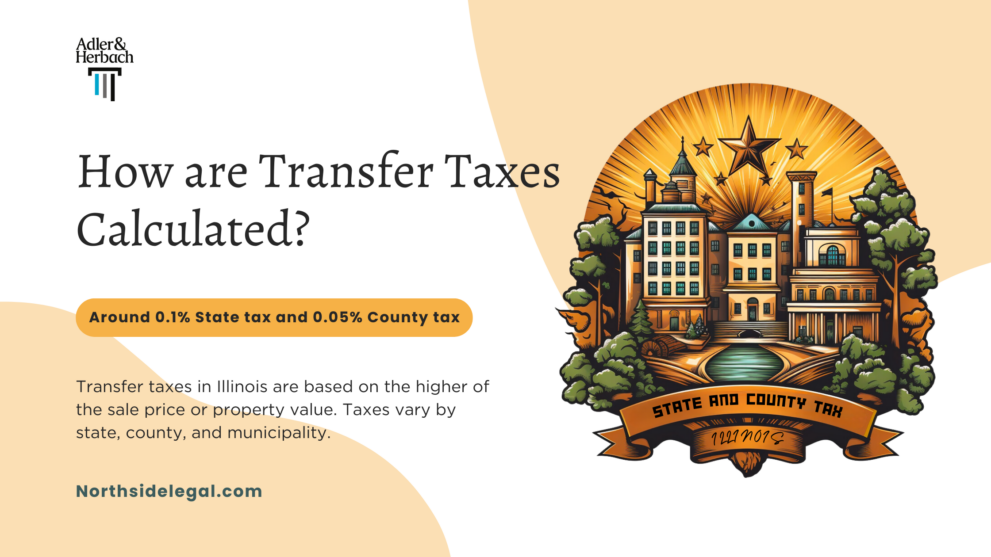Transfer taxes, also known as real estate transfer taxes or conveyance taxes, are taxes imposed when real estate is sold or transferred from one owner to another. In Illinois, both the state and local governments impose transfer taxes. Here’s a look at how transfer taxes are calculated in Illinois:
How are Transfer Taxes Calculated in Illinois?.
Transfer taxes in Illinois are calculated based on the sale price or property value, whichever is higher. The state imposes a transfer tax on the seller of $.50 for every $500 of the sale price. The local county has an additional seller tax of $0.25 for every $500 of the sale price. Some municipalities charge additional transfer taxes, such as Chicago with a flat rate of 1.50 per $500 for the seller and $3.75 per $500 for the buyer.
Certain exemptions are available, such as transfers between spouses or family members and transfers involving government bodies or not-for-profit corporations. Documentation is required to claim an exemption when recording the deed.

1. State Transfer Tax
Illinois imposes a state real estate transfer tax at a rate of $.50 for every $500 of the sale price. For example:
- If a home is sold for $200,000, the state transfer tax would be $200 ($200,000 / $500 x $.50).
The tax is paid when the deed is recorded with the county after closing. The seller typically pays the state transfer tax, although it can be negotiated between the buyer and seller.
2. County Transfer Tax
In addition to the state tax, counties in Illinois impose their own transfer taxes. County transfer tax is $0.25 for every $500 of the sale price.
For example, a $300,000 home sale would incur a county transfer tax of $150 ($300,000 / $500 x 0.25). Sellers typically pay the county transfer tax as well.
3. Municipal Transfer Taxes
In addition to county transfer taxes, some municipalities in Illinois also charge their own transfer taxes. For example:
- Chicago has a municipal transfer tax of 1.50 per $500 for the seller and $3.75 per $500 for the buyer
- Evanston has a 0.50% tax ($5.00 per $1000) for a sale price up to $1,500,000
- Oak Park has a 0.80% tax ($8.00 per $1000)
Municipal transfer taxes are usually paid by the seller, though some municipalities impose them on the buyer.
4. Exemptions
Illinois provides some exemptions from real estate transfer taxes, including:
- Transfers between spouses or certain family members
- Transfers involving government bodies or not-for-profit corporations
- Transfers valued lower than $100
To claim an exemption, documentation must be provided when the deed is recorded.
Recap
In summary, Illinois real estate transfer taxes consist of:
- State transfer tax: $1 per $1,000
- County transfer tax: $.50 per $1,000
- Potential municipal transfer tax
The tax is based on the sale price or transfer value, whichever is greater. Sellers typically pay the tax, although payment responsibility is negotiable. There are exemptions available in certain circumstances.
When recording the deed, the transfer taxes must be paid to the state and any applicable local governments based on the sale price. Consulting with a real estate attorney or CPA can be helpful in understanding transfer tax obligations when buying or selling property in Illinois.

